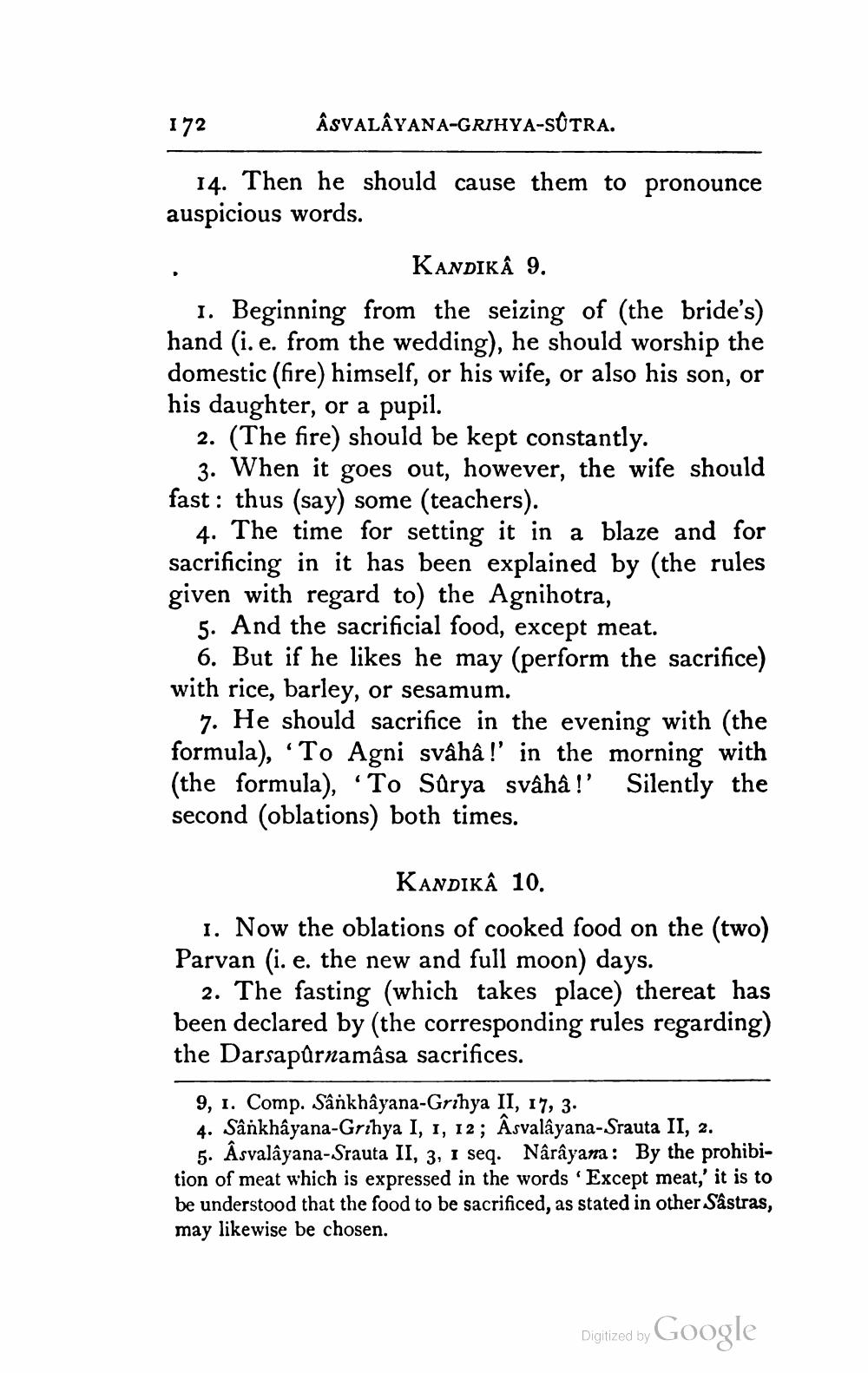________________
172
ASVALAYANA-GRIHYA-SUTRA.
14. Then he should cause them to pronounce auspicious words.
KANDIKA 9.
1. Beginning from the seizing of (the bride's) hand (i. e. from the wedding), he should worship the domestic (fire) himself, or his wife, or also his son, or his daughter, or a pupil.
2. (The fire) should be kept constantly.
3. When it goes out, however, the wife should fast: thus (say) some (teachers).
4. The time for setting it in a blaze and for sacrificing in it has been explained by (the rules given with regard to) the Agnihotra,
5. And the sacrificial food, except meat.
6. But if he likes he may (perform the sacrifice) with rice, barley, or sesamum.
7. He should sacrifice in the evening with (the formula), 'To Agni svâhâ!' in the morning with (the formula), 'To Surya svâhâ!' Silently the second (oblations) both times.
KANDIKA 10.
1. Now the oblations of cooked food on the (two) Parvan (i. e. the new and full moon) days.
2. The fasting (which takes place) thereat has been declared by (the corresponding rules regarding) the Darsapurnamâsa sacrifices.
9, 1. Comp. Sânkhâyana-Grihya II, 17, 3.
4. Sânkhâyana-Grihya I, 1, 12; Asvalâyana-Srauta II, 2.
5. Âsvalâyana-Srauta II, 3, 1 seq. Nârâyana: By the prohibition of meat which is expressed in the words 'Except meat,' it is to be understood that the food to be sacrificed, as stated in other Sâstras, may likewise be chosen.
Digitized by Google




